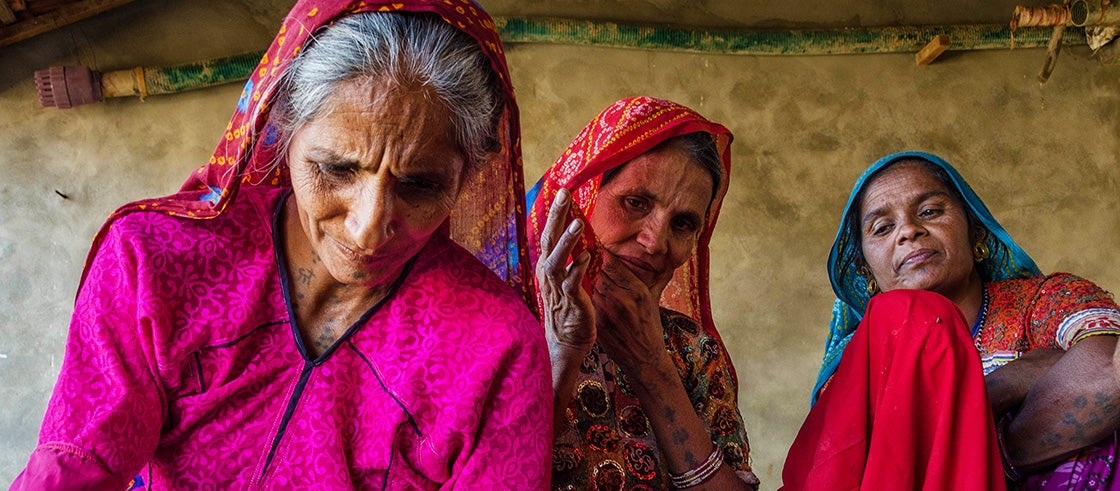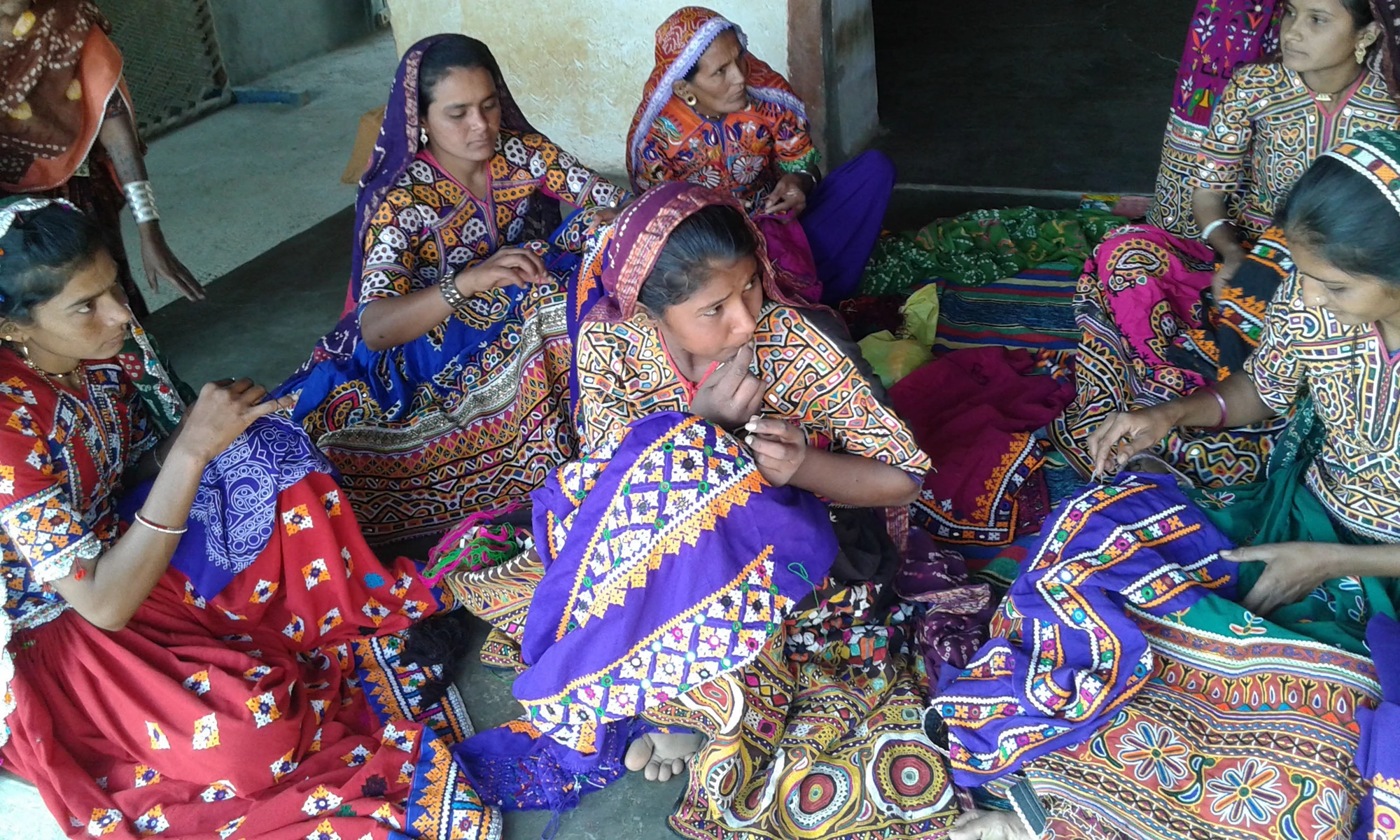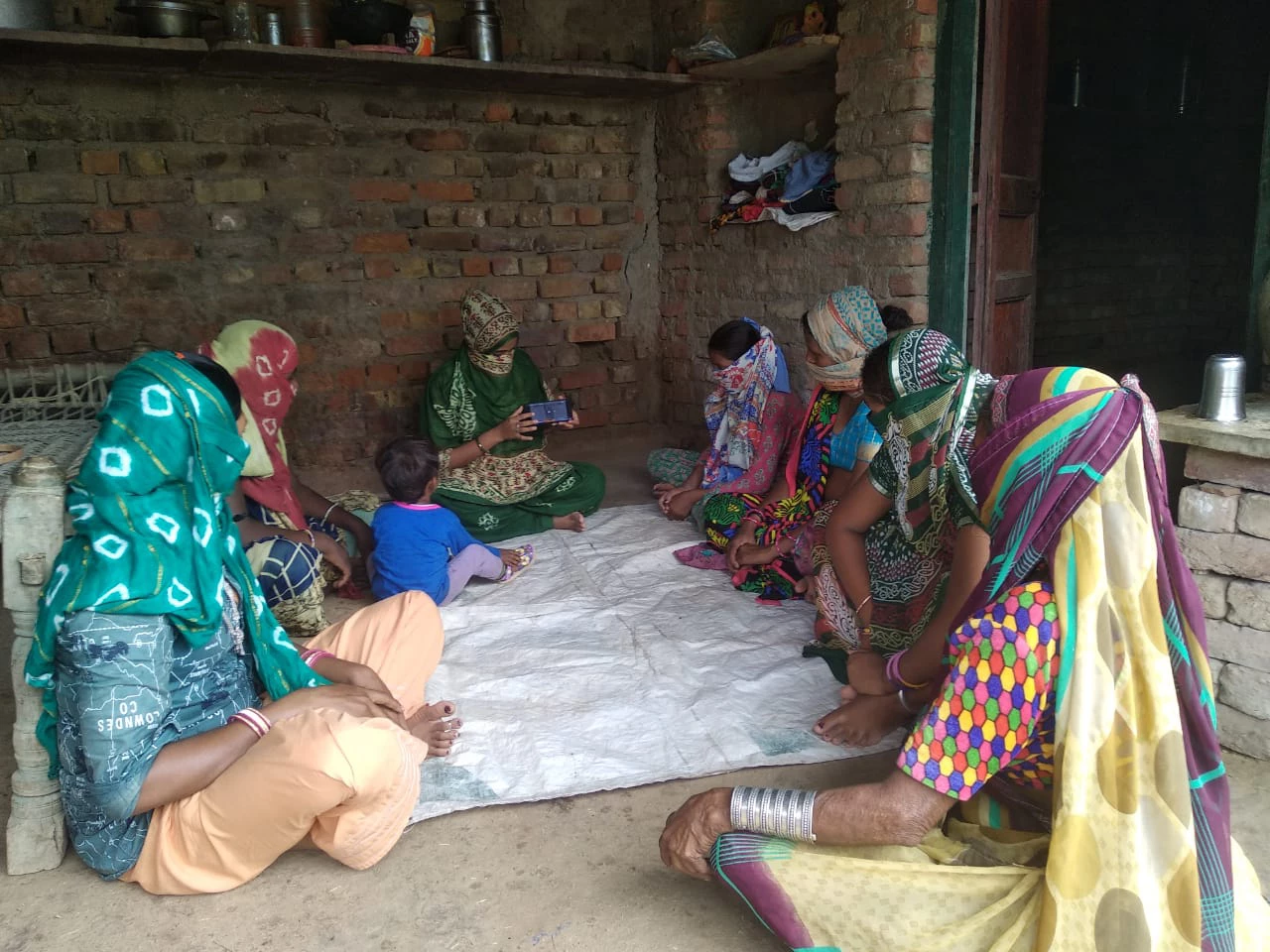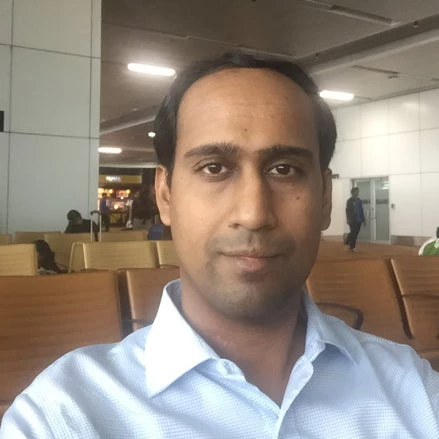 Women artisans from Barara village in Gujarat’s Patan district doing traditional embroidery. Photo Credit: Self Employed Women’s Association (SEWA)
Women artisans from Barara village in Gujarat’s Patan district doing traditional embroidery. Photo Credit: Self Employed Women’s Association (SEWA)
Muskanben Vohara and her group of women weavers in Gujarat’s Anand district were overcome with worry when the lockdown was announced to contain the Covid-19 pandemic.
Luckily, Muskanben and her group had just been trained in digital skills by the Self-Employed Women’s Association (SEWA), a membership-based organization that seeks to improve the lives and livelihoods of women who work in the informal sector, including seamstresses, artisans, vendors, and small and marginal farmers.
Armed with the training, the group was soon able to share photographs of their products online, create Whatsapp groups of customers, and enable digital payments for purchases.
“Our Leelawati project proved timely,” explained Reema Nanavaty, SEWA’s director. “When we first launched it, traditional occupations were being buffeted by globalization, liberalization and other economic changes. Little did we realize how useful the training would become during the pandemic.”
Opening a new world of digital opportunities
While the trainings have enabled Muskanben and other crafts persons to broaden their customer base through Facebook and Instagram , most women have used their new skills to weather the pandemic’s disruptions by learning how to carry out basic online transactions.
Many of them now make cashless payments through PayTm, the BHIM App, and Google Pay rather than meeting people, handling cash and risking infections.
Mitali Prajapati, whose father runs a utensil shop in Ahmedabad district, remembers the difficulties they faced in the early days of the pandemic. “Our business stalled as my father could no longer travel to other villages to pay his suppliers,” she recalled. “The training helped me overcome my fear of losing money and now I make these payments digitally for him.”

Jayshree Gharoda from Gujarat’s Kutch district never used her mobile phone for anything other than calls. Now, this 30-year-old who lives with her husband’s 14-member extended family, pays all the household’s bills online.
“Earlier, only the men-folk in the family had smartphones,” recounted Jayashree. “But when my husband saw what I could do, he bought me a smartphone as well. Now, I download apps from Playstore and watch YouTube videos to learn new ways of making traditional home decorations, earning me extra money.”

In Rajasthan’s Dungarpur district, 35 year-old Ritika Kumari seldom left the house in keeping with the customs of her traditional Rajput community. “I always veiled my face in front of the men in my husband’s family,” said the bubbly mother-of-two. “It was only after I joined SEWA in 2014 that I gained the self-confidence to speak out at our panchayat - village council - meetings.”
Her newly-acquired digital skills have made Ritika Kumari much more self-reliant. “I don’t have to depend on anyone anymore as I can now buy all my household supplies online. I have also learnt how to use Google Maps when I visit new places in distant Jodhpur and Ahmedabad.”
Standing by the people during difficult times
What’s more, by linking its members through videoconferences, SEWA has been better able to understand the problems at the grassroots. For instance, when rural families found it difficult to access basic groceries, SEWA coordinated with an agro-produce supply chain to provide them with essentials at fair prices.
"We weren’t able to meet during the lockdown,” said Heenaben Dave from Gujarat's Surendranagar district. “But thanks to these virtual meetings, we have at least been able to see other and discuss our problems. This has boosted our confidence as we feel we have an organization supporting us in these difficult times.”
“Through this program, our effort has been to open up new livelihood opportunities for poor rural women, promote women-led entrepreneurship and accelerate a national shift towards the greater inclusion of women in the workforce,” he added.
The Leelavati Project seeks to improve the digital and financial literacy of at least 500,000 women members across six Indian states: Gujarat, Rajasthan, Uttar Pradesh, Bihar, Meghalaya and Assam. It is supported by the Japan Social Development Fund (JSDF) and managed by the World Bank.




Join the Conversation